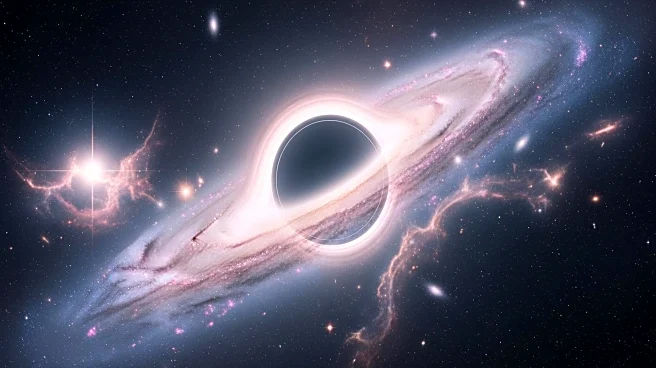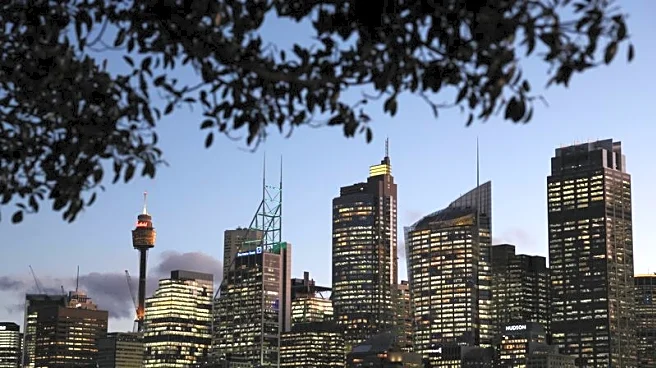What's Happening?
Physicists at the University of Massachusetts Amherst predict a 90% chance of observing a black hole explosion within the next ten years. The study suggests these explosions are more common than previously thought, occurring every decade rather than every 100,000 years. Such an event would confirm the existence of primordial black holes and provide insights into Hawking radiation and fundamental particles.
Why It's Important?
The potential observation of a black hole explosion would be a groundbreaking event in astrophysics, offering direct evidence of Hawking radiation and the existence of primordial black holes. It could revolutionize our understanding of the universe's fundamental particles and the mechanisms behind black hole evaporation. This discovery would have significant implications for theoretical physics and cosmology.
What's Next?
If a black hole explosion is observed, it would confirm several theoretical predictions and provide a wealth of data for physicists to analyze. The event could lead to advancements in particle physics and cosmology, potentially reshaping our understanding of the universe's composition and evolution. Researchers may focus on developing technologies to better detect and study such phenomena.











